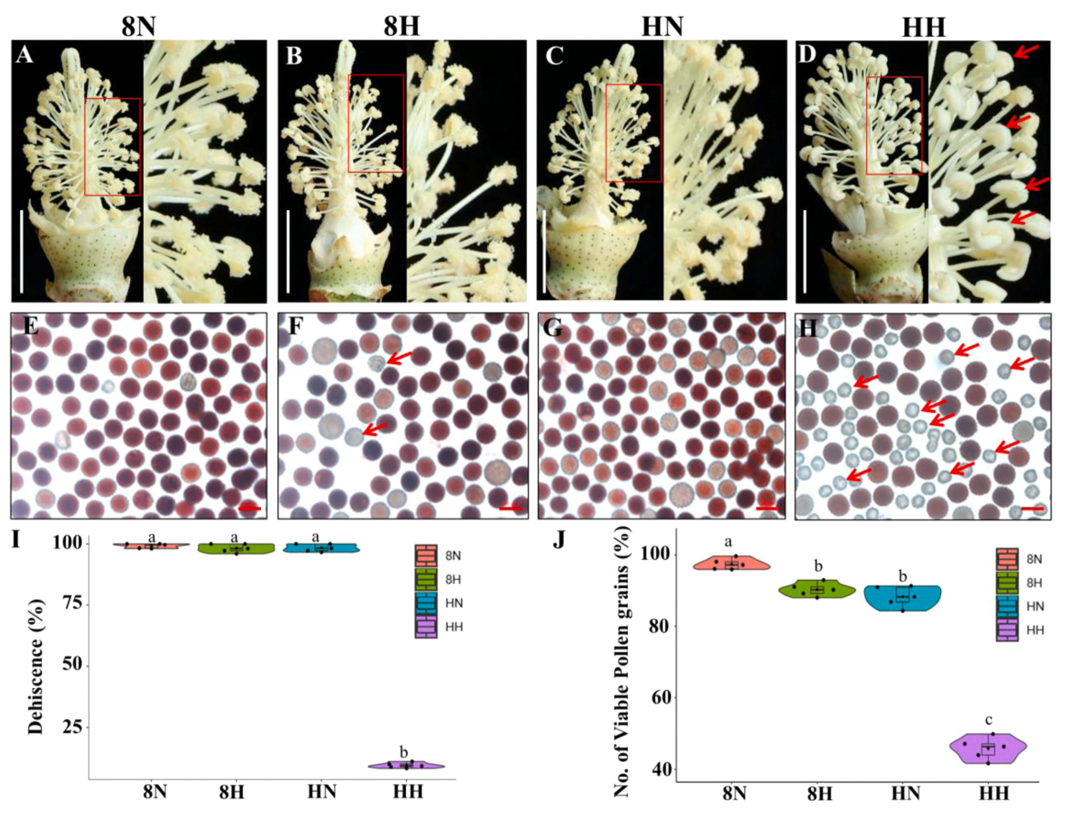Abstract
Cotton (Gossypium hirsutum) is a typical tropical and subtropical commercial crop. During the reproductive development period of cotton, high temperature (HT) weather frequently occurs, which leads to male abortion and yield loss. Identifying proteins that experience coordinated metabolism in anthers during HT stress could provide information regarding protein dynamics under HT stress and assist in developing HT-tolerant cotton varieties. In the current study, two-dimensional electrophoresis (2-DE) of the anthers of an HT-sensitive line (H05) and an HT-tolerant line (84021) was performed. In total, 307 differentially expressed protein spots were identified in the anthers of the H05 and 84021 lines. The Gene Ontology analysis revealed that protein processing in the endoplasmic reticulum pathway plays a major role in the anther response to HT stress conditions involving a group of heat shock proteins (HSPs). Among these HSPs, HSP70-17 and binding protein 5 (BiP5) play vital roles under HT stress conditions in cotton. Furthermore, HSP70-17 and BiP5 proteins were expressed and verified through a prokaryotic expression system and western blot analysis, respectively. Exogenous applications of HSP70-17 and BiP5 proteins reduced ROS accumulation in pollen grains under HT stress conditions. These results suggest that HSP70-17 and BiP5 are the key proteins in Gossypium hirsutum anthers responding to HT stress and provide a genetic resource for the development of novel cotton HT-tolerant cultivars.

full text